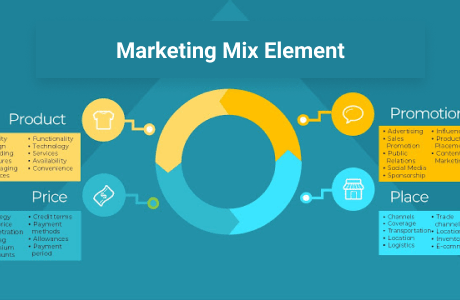For businesses in any industry and of any size, location-based data and the use of a location analysis tool can take your marketing to the next level.
Location-based marketing means that you’re targeting your audience based on where they are at a current moment, or maybe where they’ve recently been.
For example, you could target an audience that had recently been to a local car repair shop, or maybe you’re using zip codes to target people.
Location data can provide a lot of information about what a person does on a daily basis. This could include their shopping habits, where they prefer to eat, and it can even provide information about how they go from looking at a product online to buying it in a store.
The use of location-based data means that you can personalize your products or services and be more targeted and efficient with your marketing.
The following are some of the big things to know.
The Basics
Location data is typically a reference to the specific geographic position of a smartphone or another device, or a building.
There are coordinates that are expressed as Latitude and Longitude, and these are the geographic positions themselves.
As far as marketing, GPS data is what’s most commonly being talked about. GPS provides coordinates gathered by a device.
There’s another term to be aware of here too, which is a Software Development Kit or SDK.
SDK codes are used by app developers. These codes then tell the app once it’s installed on someone’s device to collect location data from that device. The codes that are installed in an app do require that the user give explicit permission for the collection of location data.
The SDK method gives deep insight into the habits of users, but the opt-in element is important. Usually, the opt-in is obtained when a user first interacts with an app after downloading it.
In some cases, an SDK can only work when the app is open, and others can run in the background.
Legality
Location data doesn’t record someone’s identity or any information that could personally identify them. Businesses small and large throughout the world do use location data.
There are regulations and legal compliance issues to be aware of, though.
For example, data privacy laws dictate how businesses can collect and utilize some customer data.
A data collector has to get the specific consent of someone to use, store, manage or share their data. You also have to provide them the opportunity to opt-out any time.
Strategies For Location-Based Marketing
There are a lot of ways that you can use location-based data in your marketing. Examples include:
- Geofencing: This is a concept where location data is collected in real-time. With this approach, there’s the creation of a virtual perimeter around a certain location. Then, you’re either gathering data within that or targeting. You can use it for proximity marketing. For example, if someone with your app enters an area within your perimeter, then they might get a push notification letting them know of a sale or event.
- Geotargeting: This is about delivering ads to people in a particular location, but it’s different from geofencing in that it can use previous location data paired with specific attributes of the audience. It might, for example, use location along with interest or behavioral data. This gives the opportunity for segmented and tailored marketing.
- Conquesting: This location-driven marketing approach is about reaching your competitor’s customers. For example, you’re using collected data to reach an audience when they are visiting the location of your competitor.
What Types of Businesses Are a Good Fit for Location-Driven Marketing?
There are broadly a few types of businesses that might find location marketing is a good fit for them.
First, if you have retail locations, it can be a good idea to explore the collection of location data. This can include shops, restaurants, or car dealerships.
If you’re a business that has special events or seasonal events, you might consider it. This could include event venues, sporting businesses, and businesses in travel or hospitality.
eCommerce brands might use location marketing to find shoppers that go to brick-and-mortar competitors.
Niche industries such as transportation and real estate as well as education can benefit from location marketing.
Location data is really the biggest thing right now in terms of understanding customer behavior and the full customer journey and filling in gaps in that journey or perhaps the gaps between online and offline behavior.
Read Also:
- Crucial Role of Content Marketing in Local Business
- Tips on Doing Search Engine Marketing (SEM) for Businesses
- 5 Marketing Tips to Help Grow Your Business on Instagram


























